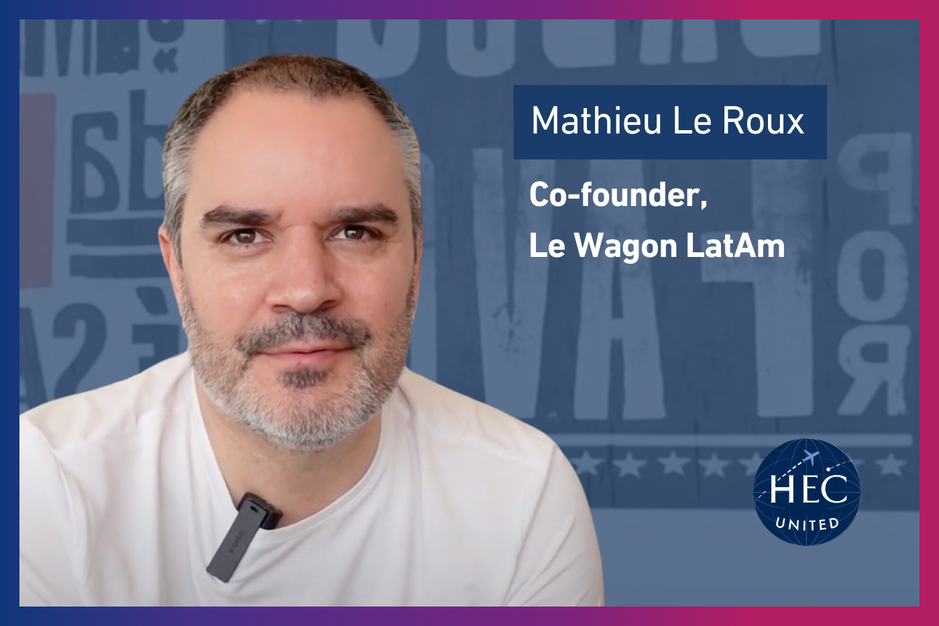Opening a Franchise and Revolutionize EdTech in Latin America
Mathieu's career has been a remarkable journey through various facets of the technology sector—from venture capitalism and startup operations to becoming a key player in Latin America's EdTech scene. Over the past seven years, he has been instrumental in establishing and expanding Le Wagon's presence by creating a franchise in Latin America. Discover his story in an interview featured by HEC United.

HEC United is a documentary series, presented this year by HEC students Joséphine Van Eecke and Camille Boussier, who set off to meet HEC Alumni - entrepreneurs and changemakers - around the world.
New stop: São Paulo, Brazil, to meet with Mathieu Leroux, co-founder of Le Wagon Latam, the Latin American franchise of Le Wagon, an international coding & data science school.
From Venture Capitalism to Learning How to Code
Mathieu has always been deeply embedded in the tech sector, enjoying various roles throughout his career. He began as a venture capitalist, gaining valuable insights into investment strategies and the startup ecosystem. His subsequent roles in startups like Deezer further shaped his understanding of the operational challenges and opportunities within the tech sector.
During this time, Mathieu recognized a gap in his skill set: coding. His search led him to Le Wagon, a renowned institution known for its intensive coding bootcamps designed for individuals with no prior tech experience.
Motivated to learn, he reached out to Boris Paillard, the founder of Le Wagon, on LinkedIn. Their conversation had a profound impact. "Within ten minutes, I was convinced I was going to be a student, and within thirty minutes, I was considering opening a franchise in Latin America," Mathieu affirms.
Education and Innovation for the better
When Mathieu decided to start a franchise in Latin America, coding bootcamps were non-existent. Recognizing a significant market opportunity, he founded a franchise of Le Wagon in Brazil in 2016.
He was, and still is, convinced of one thing: traditional educational models—where individuals acquire all necessary skills early in their career and use them for decades—are outdated.
One of the unique aspects Mathieu highlights about Le Wagon is its emphasis on social learning. He recognizes that learning in a group, which fosters interactions among peers, substantially improves learning efficiency.
Furthermore, the integration of AI technology has revolutionized the company's learning model. By beta-testing AI chatbots to assist students, they have reduced the reliance on human teaching assistants.
This technology-driven method ensures that personalized education is scalable while maintaining a high degree of interactivity.
Beyond its innovative aspects, Mathieu’s work with Le Wagon demonstrates the profound social impact such an initiative can achieve in emerging countries. Individuals from diverse backgrounds, including gardeners, doormen, and tattoo artists, have transitioned into high-paying tech jobs thanks to Le Wagon’s bootcamps.
Listen to the full interview to learn more.
For more inspiring stories and insights from HEC Alumni, check out the HEC United Youtube playlist.
About HEC United
HEC United is an ongoing student-led project that creates a connection between current HEC students and thousands of alumni spread across the world. A team of two students travels to various countries each year to interview alumni about their experiences during and after their time at HEC.